Indigenous Governance Database
NNI and Harvard Project Research
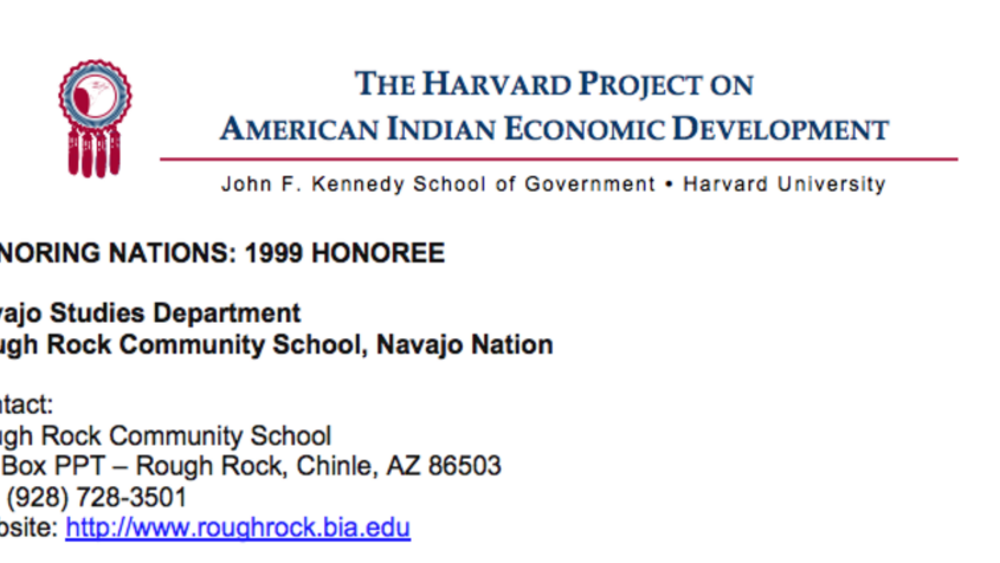
Navajo Studies Department
Created in 1966 as the first contract school in the country, Rough Rock is a Navajo-run institution that combines traditional Navajo learning with Western education. Its Navajo Studies curriculum, which addresses such subjects as culture, history, and language, was named by the Tribal Council as…
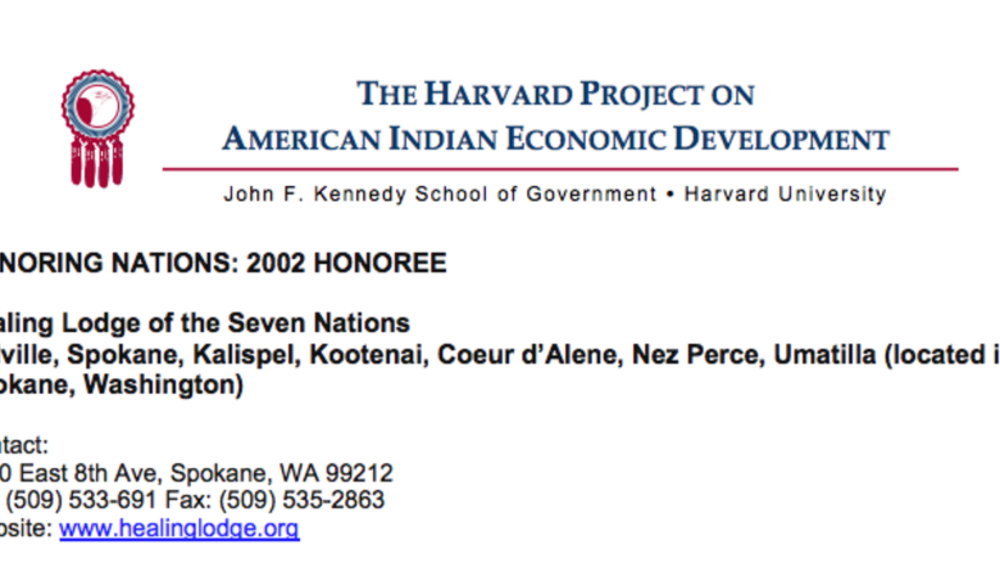
The Healing Lodge of the Seven Nations
Owned by a consortium of seven tribes, the Healing Lodge is a treatment center that helps Native American youth and their families heal from the trauma of alcohol and drug abuse. With a focus on blending culture and spirituality with mental health/chemical dependency treatment, services include in-…
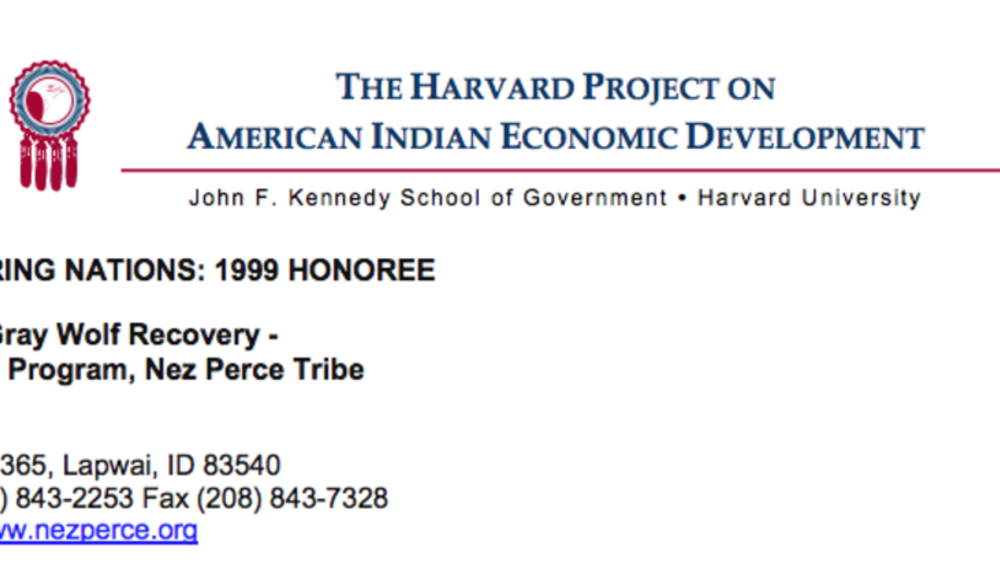
Idaho Gray Wolf Recovery Program (Nez Perce)
By developing a plan that includes monitoring, outreach, species management/control, and research, the Tribe is now leading the statewide recovery of the endangered Gray Wolf. The recovery program, which meets the guidelines developed by the US Fish and Wildlife Services, has resulted in a wolf…
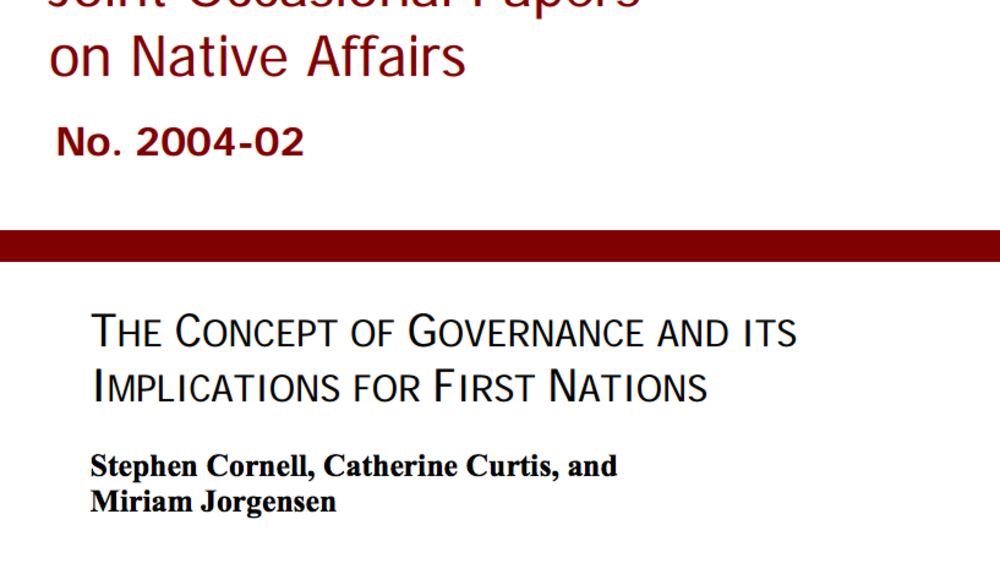
The Concept of Governance and its Implications for First Nations
What is governance? What is government? What does each do? And what distinguishes good governance - or good government - from bad? Why is the quality of governance important to the success of human societies? And what is the significance and meaning of self-governance? And What does effective self-…
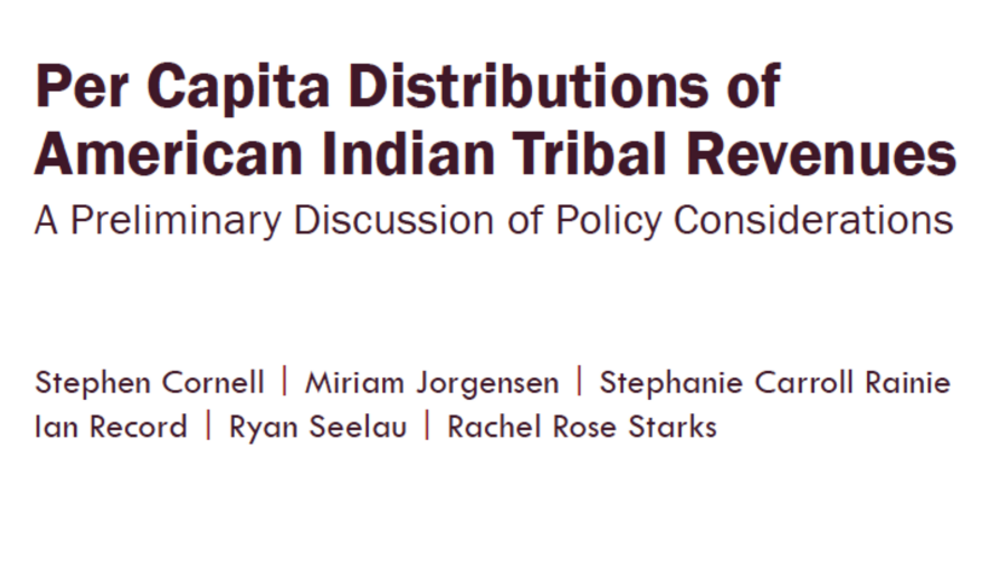
Per Capita Distributions of American Indian Tribal Revenues: A Preliminary Discussion of Policy Considerations
This paper examines policy considerations relevant to per capita distributions of tribal revenues. It offers Native nation leaders and citizens food for thought as they consider whether or not to issue per capita payments and, if they choose to do so, how to structure the distribution of funds and…
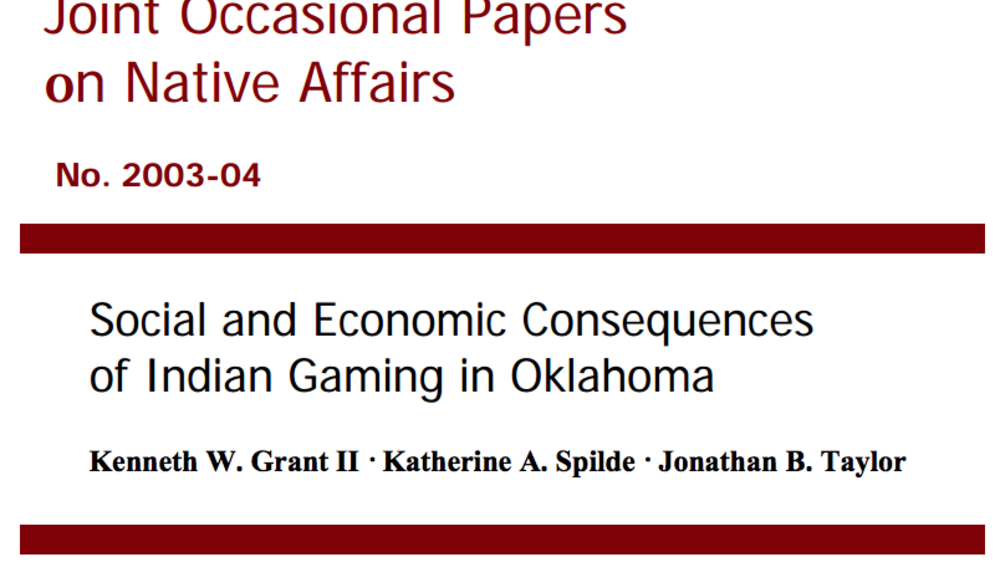
Social and Economic Consequences of Indian Gaming in Oklahoma
Much has been written in the mainstream press about Indian gaming and its impact on Indian and non-Indian communities. The debate, however, tends to be focused on Class III or “casino-style” gaming. The effects of Class II gaming have largely been overlooked by the press and, unfortunately, by the…
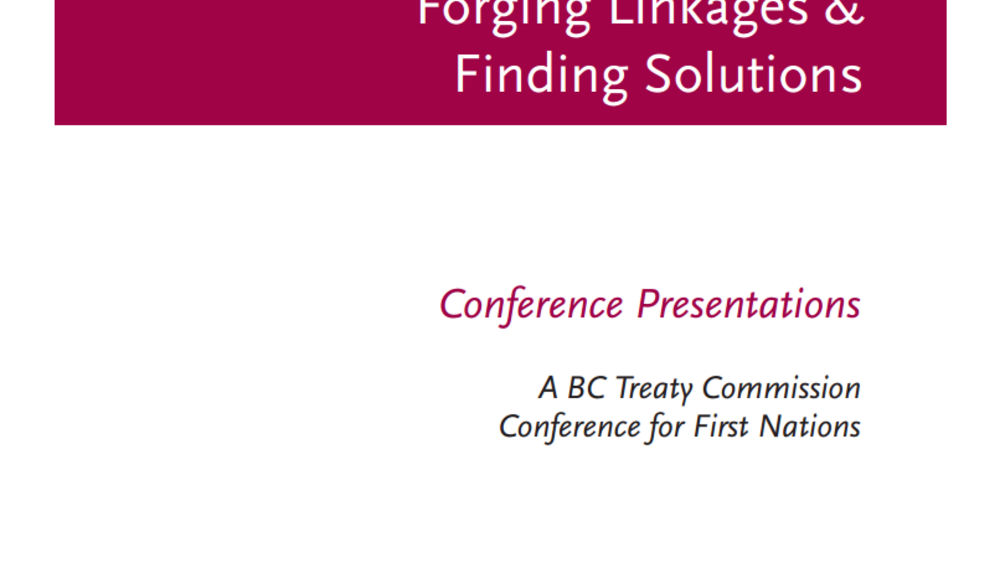
Rights, Governance, and the BC Treaty Process
The keynote address given at the BC Treaty Commission Conference for First Nations that discusses the rights, governance and the BC treaty process. Cornell emphasizes the fact that treating making can be more than a process. It can lead to the phenomenal concept of nation building that is sweeping…

Indigenous Peoples, Poverty and Self-Determination in Australia, New Zealand, Canada and the United States
Australia, New Zealand, Canada and the United States are among the world’s wealthiest nations. It is an often noted irony–and an occasional source of embarrassment to the governments of these countries–that the Indigenous peoples within their borders are in each case among their poorest citizens.
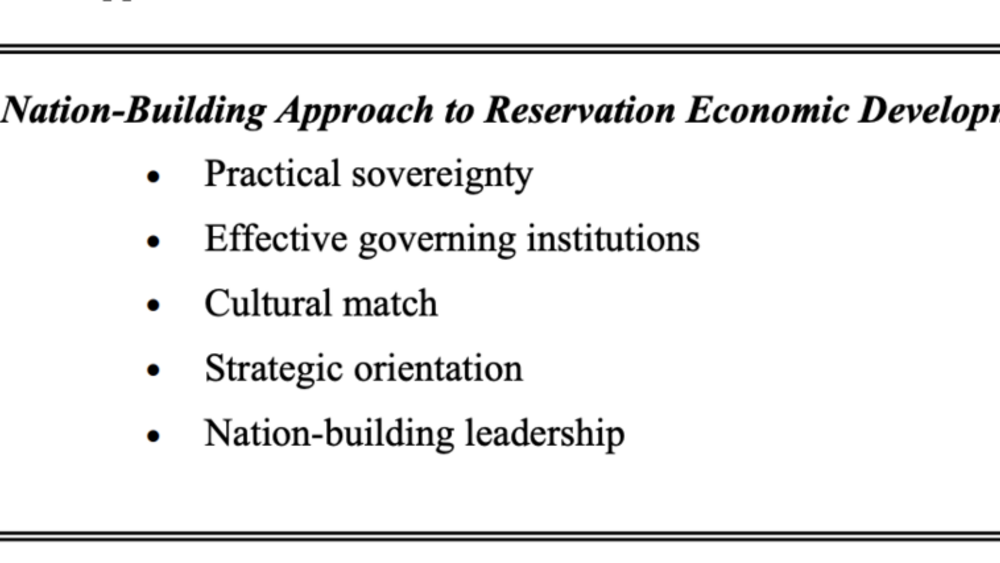
Two Approaches to Economic Development on American Indian Reservations: One Works, the Other Doesn't
As much of the world knows, American Indian nations are poor. What much of the world doesn't know is that in the last quarter century, a number of these nations have broken away from the prevailing pattern of poverty. They have moved aggressively to take control of their futures and rebuild their…
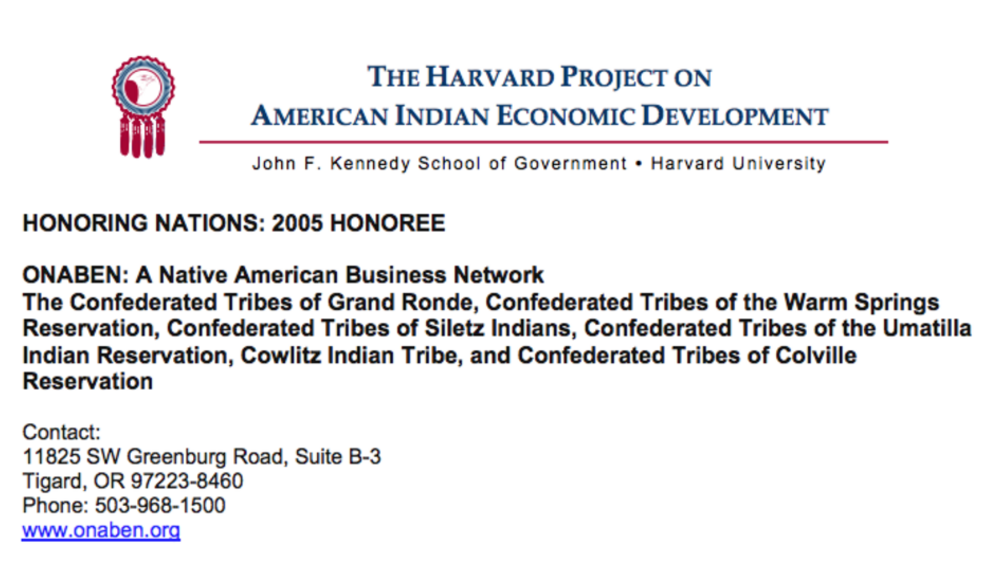
ONABEN: A Native American Business and Entrepreneurial Network
Founded by a consortium of Native nations in the Pacific Northwest, ONABEN's mission is to increase self-reliance by promoting the development of tribal-citizen-owned small businesses and the diversification of reservation economies. ONABEN's programs provide financial counseling, business…
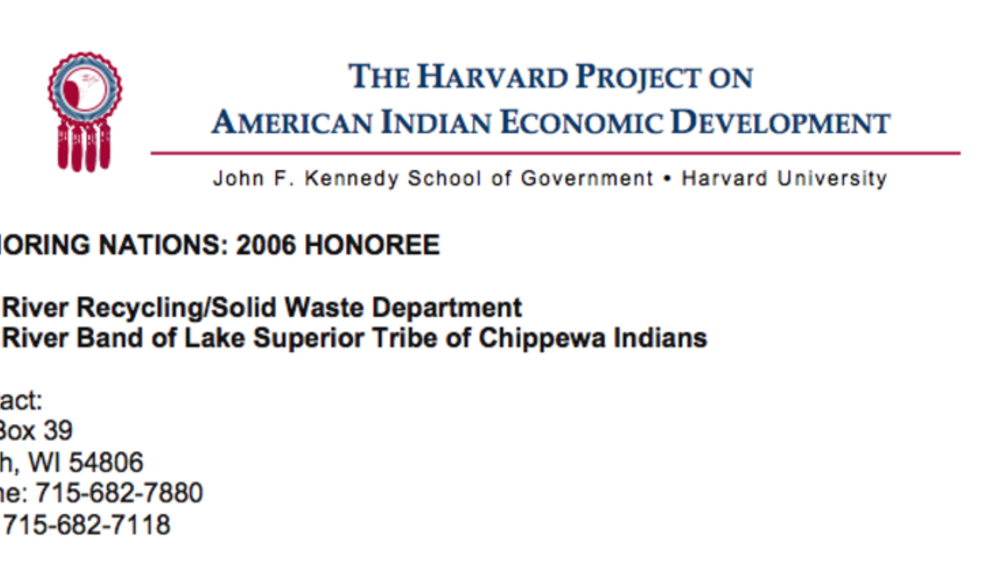
Bad River Recycling/Solid Waste Department
The Bad River Recycling/Solid Waste Department created environmentally sound practices of managing and disposing of waste generated on the reservation, ending cycles of harm to tribal citizens, lands, and water. Historically, waste was not only hazardous, but noticeable and abundant on reservation…
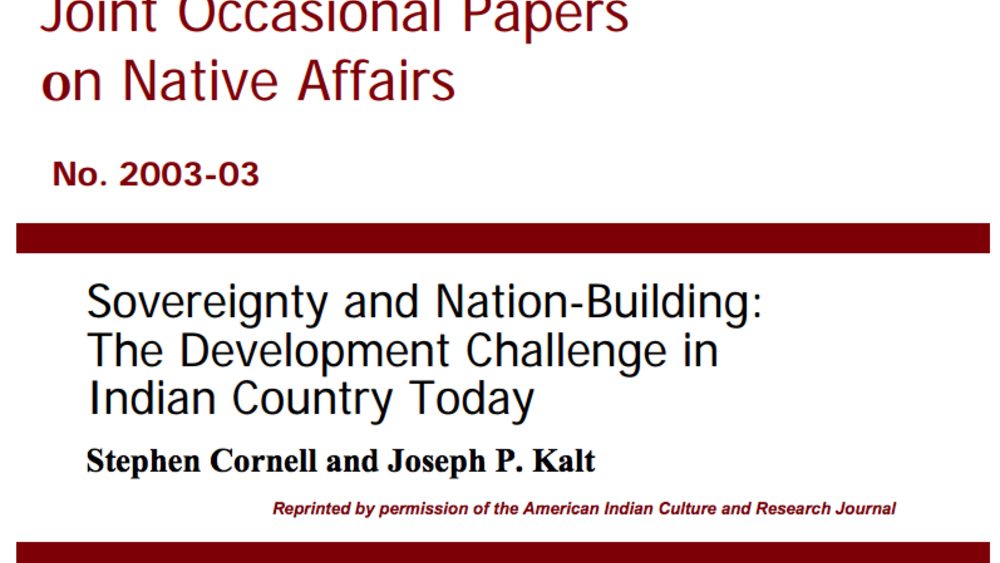
Sovereignty and Nation-Building: The Development Challenge in Indian Country Today
The Indian nations of the United States face a rare opportunity. This is not the occasional business opportunity of reservation legend, when some eager investor would arrive at tribal offices with a proposal guaranteed to produce millions of dollars for the tribe--although such investors still…
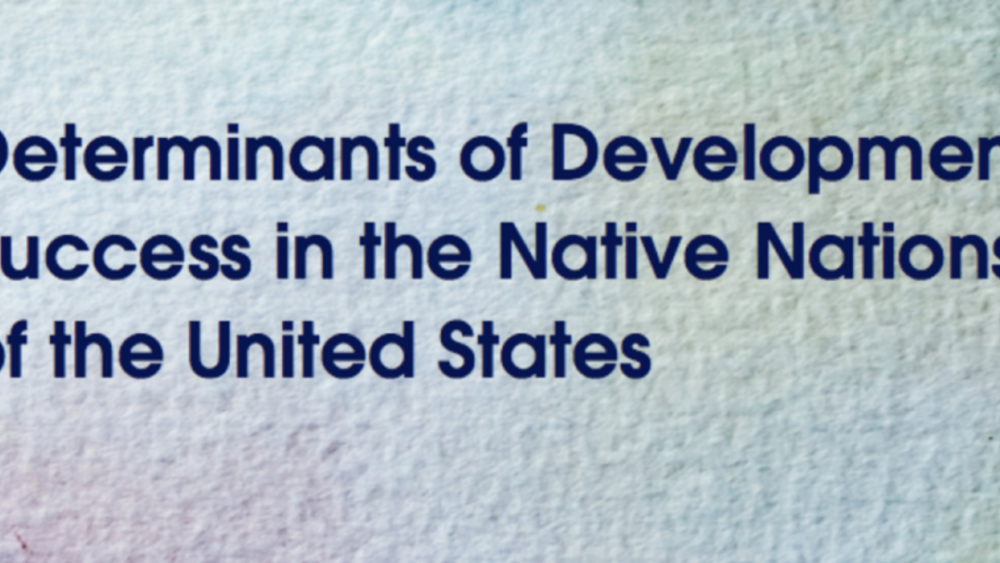
Determinants of Development Success in the Native Nations of the United States (English)
The poverty of indigenous North Americans, especially those living on reservations, has concerned Indian and federal policymakers for more than a century. After the treaty making phase and the establishment of the reservation system, federal policies to address Native poverty vacillated between…
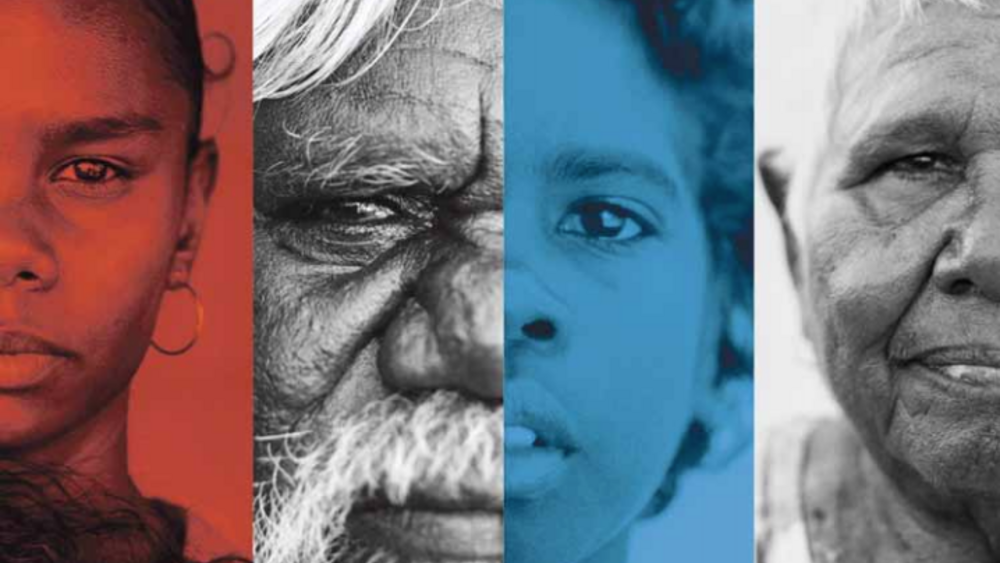
Can Australia follow Obama's lead?
This article was prompted by US President Barack Obama’s recent commitment to effectively empower American Indian nations to re-build their own decision-making capability. The President recognises that genuine self-determination is not only good public policy but is essential for…
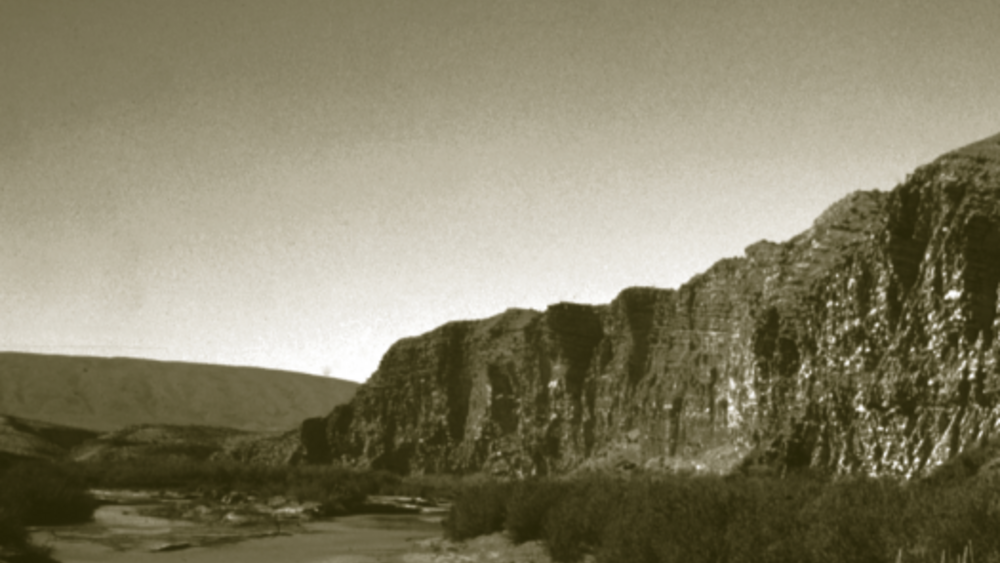
Protecting the Fish and Eating Them, Too: Impacts of the Endangered Species Act on Tribal Water Use
The scarcity of water in the American West and the increased demands for the resource have created much tension of late between tribes, endangered species advocates, and the holders of water rights granted by the states for non-native consumptive uses. The over-allocation of water by state…
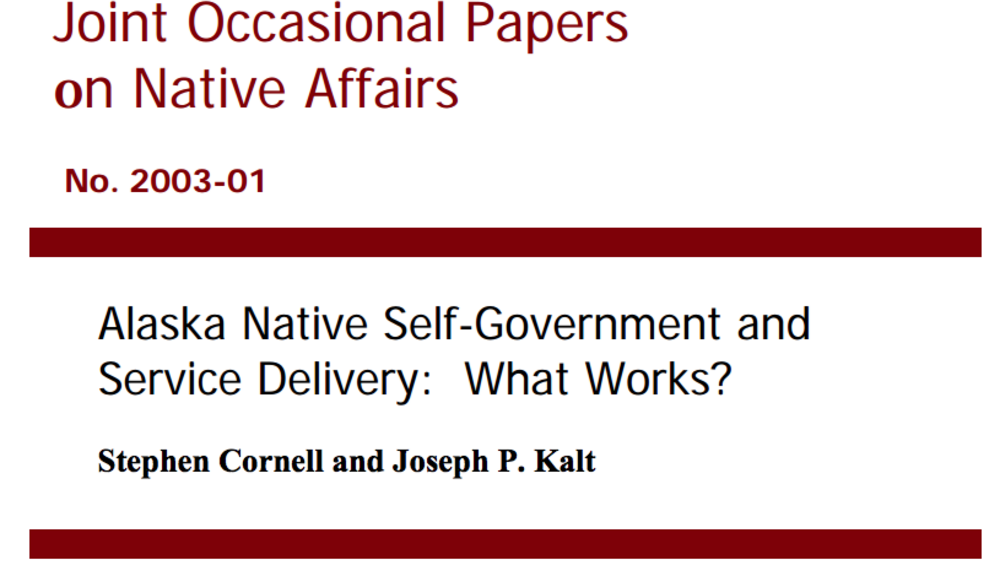
Alaska Native Self-Government and Service Delivery: What Works?
The Native peoples of Alaska have governed themselves for far longer than either the State of Alaska or the United States. Indeed, their rights of self-government are properly defended as basic human rights that are not unilaterally extinguishable by these other governments. Yet, today an…
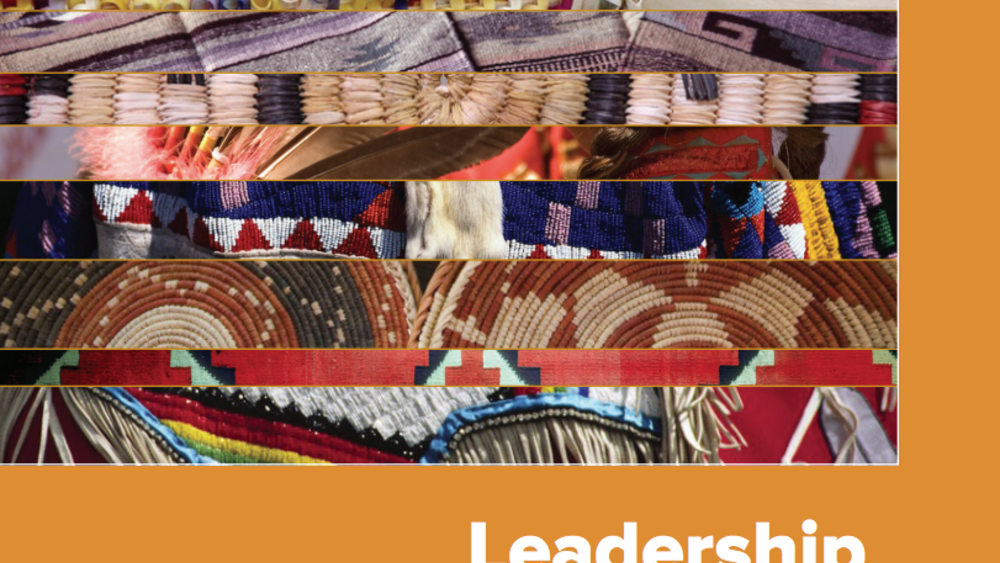
Leadership Development in the Native Arts and Culture Sector
Burgeoning cultural renewal in Native America and growing mainstream recognition of Native artists and their ideas have resulted in substantial growth in the Native arts and culture sector. The leaders of Native arts and cultural organizations have been a significant force behind this change. They…
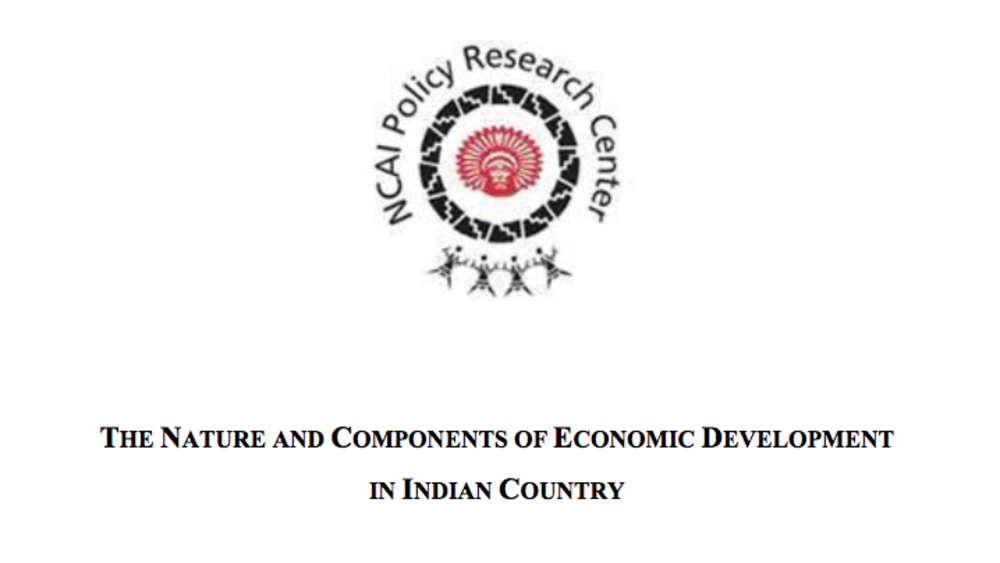
The Nature and Components of Economic Development in Indian Country
Defines what economic development means and how it applies in Indian Country; looks at the changing patterns of Indian Country economic development; debunks some of the myths and misconceptions about economic development in Native nations; suggests policy options for both Indigenous nations and the…
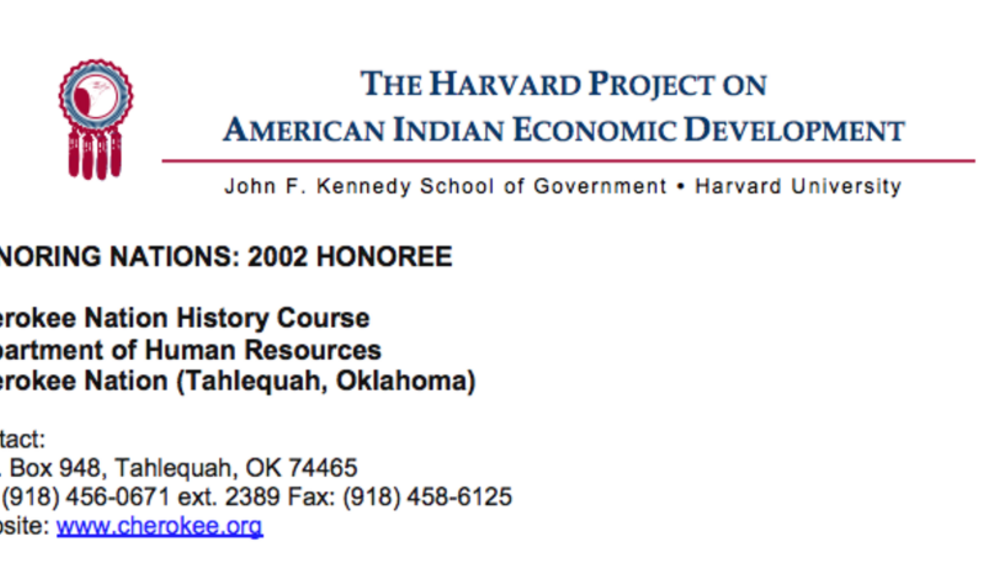
Cherokee Nation History Course
Launched in 2000, the Cherokee Nation History Course is a free, 40-hour, college-level study offered to 1,800 tribal employees and members of Cherokee communities. Through lectures, discussions, case exercises, and role-playing, the course teaches Cherokee history, culture, and government to both…
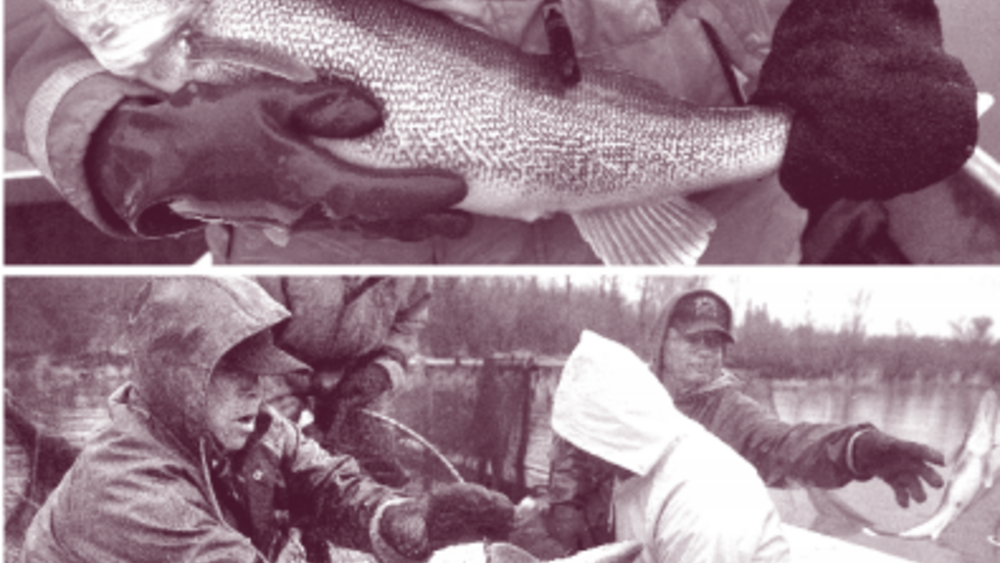
We Are the Stewards: Indigenous-Led Fisheries Innovation in North America
This paper offers an overview of the current state of Indigenous-led fisheries management in the United States and Canada. It summarizes major trends in Indigenous-led fisheries innovation in North America and presents common keys and challenges to the success of these efforts. It chronicles three…
Pagination
- First page
- …
- 6
- 7
- 8
- …
- Last page
